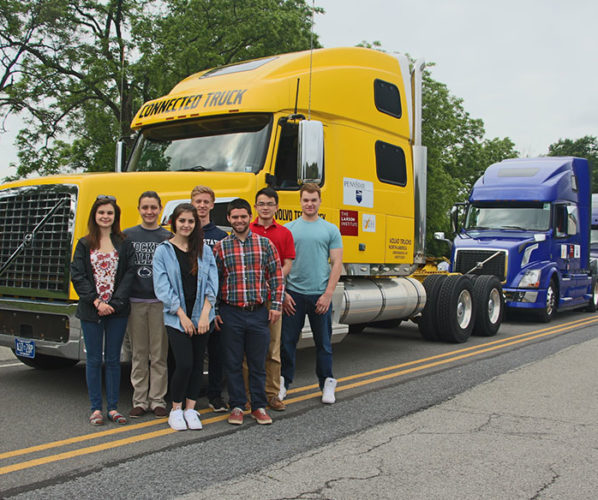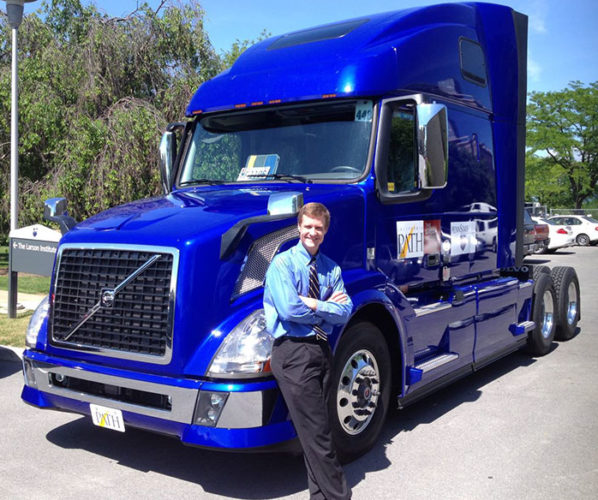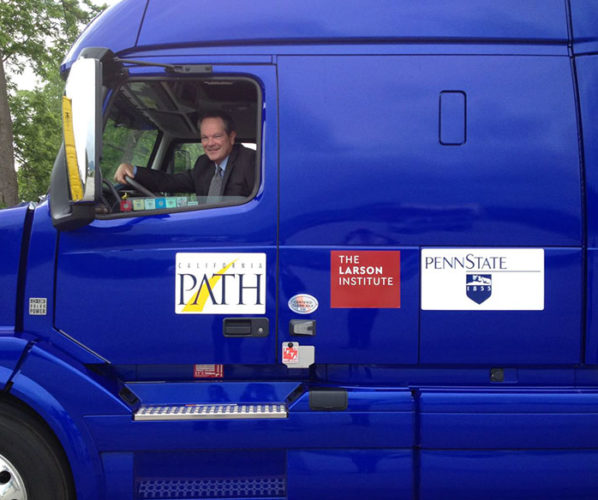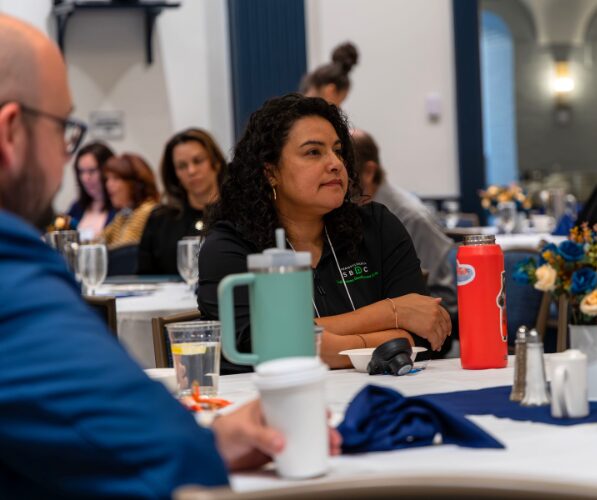Success Story
“Penn State offers stellar technical and supply chain programs, making them a natural partner.”
Torbjörn Holmström
Chief Technology Officer, Volvo Group
Volvo Group and Penn State are a Partnership in Motion
Penn State builds on its ongoing relationship with automaker Volvo Group to explore the potential for intelligent commercial vehicles.
As an Academic Preferred Partner of the Volvo Group, Penn State is used to collaboration on research initiatives with the automaker. The program, launched in 2013, includes research into fuels, engines, and driver assist and collision avoidance, and additionally provides Penn State Students with co-op, internship and mentoring opportunities.
At the time of the program launch, Volvo identified the University’s strong research and academics as key opportunities. “Penn State offers stellar technical and supply chain programs, making them a natural partner for the Volvo Group,” said Torbjörn Holmström, Volvo Group chief technology officer and executive vice president, Volvo Group Trucks Technology.
In June 2015, Penn State welcomed partners from Volvo Group Trucks Technology and the University of California, Berkeley (UCB) to build on the partnership with a research collaboration in intelligent commercial vehicles.
Several “connected trucks” held demonstrations at the Penn State test track facility to feature the team’s work. Connected vehicles can talk to each other through devices called dedicated short-range communication (DSRC) radios.
The broader research team, led by UCB, is working to modify automatic cruise control systems to include these DSRC devices in commercial trucks. The technology would enable platoons of trucks to work together with “cooperative adaptive cruise control.”
As part of the project, Penn State is developing driver simulation software to aid in testing. This open-source software can put multiple people into the same driving simulator, much like a video game.
Researchers have control over the entire environment and can create contingencies including cooperative or disruptive bystander traffic, strange road configurations or blocked sensor inputs.
The software facilitates testing of situations that would be impossible to test on open roads, like communication or mechanical failures – which the system must accommodate before it can be adopted for use.
The conversation at Penn State explored how the two universities and Volvo could pool resources, facilitate public awareness, and start doing research-level and fault-level testing beyond very simple test cases to prepare these systems for public roads.
– Adapted from an article by Shea Winton








